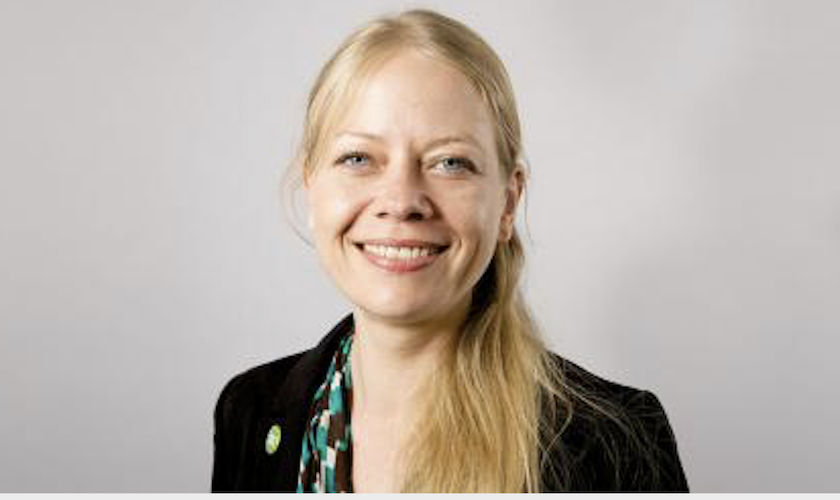Green Party candidate for London Mayor Sian Berry would extend City Hall’s ultra-low emission zone to the whole of London, alongside introducing a new road pricing system and moving towards flat fares on public transport.
In an uncompromising address to members of the London Chamber of Commerce and Industry in Great George Street on Thursday, the London Assembly member, Camden councillor and Green Party co-leader also called for the closure of London City Airport, a “massive reduction” in flights overall, abandoning HS2 and a veto on new road-building.
Underpinning her pitch, she said, was the United Nations’ stark warning issued in 2018 that decisive action was needed by 2030 to limit global warming and avert catastrophic climate change. “We are getting towards having just a decade left to get our emissions down – or there will be no jobs or any homes left to live in.”
And while progress had been made – London’s emission levels are down by a quarter since 1990 – government action alone would not be enough to reach the carbon neutral by 2050 target. With transport contributing 24 per cent of emissions and workplaces 40 per cent, “business in London needs to be organising itself to contribute to the enormous effort we have to make.”
Road pricing based on vehicle emissions and journey times would not only reduce traffic volumes but also raise money to keep fares down and boost Transport for London’s faltering investment programme, Berry said. And it would rebalance the current situation where drivers pay far less towards transport costs than fare-payers.
Updating fare zones and moving towards flat fares were also on the candidate’s agenda, with the aim of helping Outer London residents currently “paying through the nose”. And new roads, including the Silvertown Tunnel planned to relieve congestion at the Blackwall Tunnel, would simply create new traffic and make congestion worse, she said, drawing on her previous experience working at the Campaign for Better Transport.
A Green City Hall would prioritise river crossings for public transport, cycling and walking, and lobby to relax Port of London Authority shipping and clearance rules to allow lower – and cheaper – bridges to be constructed: “If we could do that then east London could have many more river crossings.”
And while there is currently no alternative to slashing flight numbers, Berry argued that people should not be “priced out” of flying completely, advocating a “frequent flyer” levy targeting the 15 per cent of flyers who make 70 per cent of flights, as well as acknowledging that closing London City Airport, could mean increasing flights from Heathrow to cater for demand “in the short term”.
Berry also called for London to have a “completely free rein” on planning policy, outside central government control, and rejected housebuilders’ arguments, made at this year’s London Plan hearings, for a review of Green Belt protections.
A lot of effort had gone into debunking City Hall’s 66,000 homes a year as “undeliverable” without encroaching on the Green Belt, she said. While not citing a specific target, she called instead for a phased approach, increasing density within London and making better use of existing homes, with small developers helped to bring schemes forward and protection for the Green Belt and light industrial sites, before looking beyond London.
And while critical of “fossil fuel” money flowing through the City, including via pension fund investment, she offered support for a more diverse and “relatively benign” business sector moving towards a “circular economy” focused on repair, reuse, recycling and less waste.
Backing East End Trades Guild proposals for an affordable “working rent” for small businesses, and the work of the charity Restart encouraging repair of electrical goods, she gave her own example too, as a Londoner who didn’t drive and walked a lot. “It’s really hard to get your shoes mended these days,” she said. “Why are there not more businesses like that?”
Berry took third place in the 2016 London Mayor election with 5.8 per cent of first preference votes, and polling in May this year again put her third, on 16 per cent. In the new context of climate emergency – Camden Council’s new climate declaration agreed this week was proposed by Berry herself – the battle is on.
The Chamber heard from Conservative candidate Shaun Bailey in September, and will host Lib Dem mayoral contender Siobhan Benita next month.
OnLondon.co.uk is dedicated to providing fair, thorough, anti-populist coverage of London’s politics, development and culture. It depends on donations from readers and would like to pay its freelance contributors better. Can you spare £5 (or more) a month? Follow this link to donate. Thank you.
